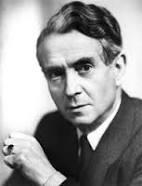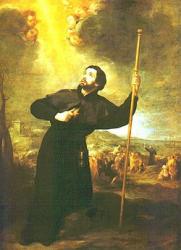Planning worship?
Check out our sister site, ZeteoSearch.org,
for 20+ additional resources related to your search.
- |
User Links
Person Results
Anonymous
Author of "O God, I Love Thee" in The Cyber Hymnal In some hymnals, the editors noted that a hymn's author is unknown to them, and so this artificial "person" entry is used to reflect that fact. Obviously, the hymns attributed to "Author Unknown" "Unknown" or "Anonymous" could have been written by many people over a span of many centuries.
Anonymous
Samuel Sebastian Wesley

1810 - 1876 Person Name: S. S. Wesley Composer of "ELLINGHAM" in The Church Hymnary Samuel Sebastian Wesley (b. London, England, 1810; d. Gloucester, England, 1876) was an English organist and composer. The grandson of Charles Wesley, he was born in London, and sang in the choir of the Chapel Royal as a boy. He learned composition and organ from his father, Samuel, completed a doctorate in music at Oxford, and composed for piano, organ, and choir. He was organist at Hereford Cathedral (1832-1835), Exeter Cathedral (1835-1842), Leeds Parish Church (1842-1849), Winchester Cathedral (1849-1865), and Gloucester Cathedral (1865-1876). Wesley strove to improve the standards of church music and the status of church musicians; his observations and plans for reform were published as A Few Words on Cathedral Music and the Music System of the Church (1849). He was the musical editor of Charles Kemble's A Selection of Psalms and Hymns (1864) and of the Wellburn Appendix of Original Hymns and Tunes (1875) but is best known as the compiler of The European Psalmist (1872), in which some 130 of the 733 hymn tunes were written by him.
Bert Polman
Samuel Sebastian Wesley
John Bacchus Dykes

1823 - 1876 Person Name: John B. Dykes Composer of "PAX DEI" in Common Service Book of the Lutheran Church As a young child John Bacchus Dykes (b. Kingston-upon-Hull' England, 1823; d. Ticehurst, Sussex, England, 1876) took violin and piano lessons. At the age of ten he became the organist of St. John's in Hull, where his grandfather was vicar. After receiving a classics degree from St. Catherine College, Cambridge, England, he was ordained in the Church of England in 1847. In 1849 he became the precentor and choir director at Durham Cathedral, where he introduced reforms in the choir by insisting on consistent attendance, increasing rehearsals, and initiating music festivals. He served the parish of St. Oswald in Durham from 1862 until the year of his death. To the chagrin of his bishop, Dykes favored the high church practices associated with the Oxford Movement (choir robes, incense, and the like). A number of his three hundred hymn tunes are still respected as durable examples of Victorian hymnody. Most of his tunes were first published in Chope's Congregational Hymn and Tune Book (1857) and in early editions of the famous British hymnal, Hymns Ancient and Modern.
Bert Polman
John Bacchus Dykes
Edward Henry Bickersteth

1825 - 1906 Person Name: Edward Henry Bickersteth, 1825 - 1906 Translator of "O God, I love thee; not that my poor love" in Service Book and Hymnal of the Lutheran Church in America Bickersteth, Edward Henry, D.D., son of Edward Bickersteth, Sr. born at Islington, Jan. 1825, and educated at Trinity College, Cambridge (B.A. with honours, 1847; M.A., 1850). On taking Holy Orders in 1848, he became curate of Banningham, Norfolk, and then of Christ Church, Tunbridge Wells. His preferment to the Rectory of Hinton-Martell, in 1852, was followed by that of the Vicarage of Christ Church, Hampstead, 1855. In 1885 he became Dean of Gloucester, and the same year Bishop of Exeter. Bishop Bickersteth's works, chiefly poetical, are:—
(l) Poems, 1849; (2) Water from the Well-spring, 1852; (3) The Rock of Ages, 1858 ; (4) Commentary on the New Testament, 1864; (5) Yesterday, To-day, and For Ever, 1867; (6) The Spirit of Life, 1868; (7) The Two Brothers and other Poems, 1871; (8) The Master's Home Call, 1872 ; (9) The Shadowed Home and the Light Beyond, 1874; (10) The Beef and other Parables, 1873; (11) Songs in the House of Pilgrimage, N.D.; (12) From Year to Year, 1883.
As an editor of hymnals, Bp. Bickersteth has also been most successful. His collections are:—
(1) Psalms & Hymns, 1858, based on his father's Christian Psalmody, which passed through several editions; (2) The Hymnal Companion, 1870; (3) The Hymnal Companion revised and enlarged, 1876. Nos. 2 and 3, which are two editions of the same collection, have attained to an extensive circulation. [Ch. of England Hymnody.]
About 30 of Bp. Bickersteths hymns are in common use. Of these the best and most widely known are:—" Almighty Father, hear our cry"; "Come ye yourselves apart and rest awhile"; "Father of heaven above"; "My God, my Father, dost Thou call"; "O Jesu, Saviour of the lost"; "Peace, perfect peace"; "Rest in the Lord"; "Stand, Soldier of the Cross"; " Thine, Thine, for ever"; and "Till He come.” As a poet Bp. Bickersteth is well known. His reputation as a hymn-writer has also extended far and wide. Joined with a strong grasp of his subject, true poetic feeling, a pure rhythm, there is a soothing plaintiveness and individuality in his hymns which give them a distinct character of their own. His thoughts are usually with the individual, and not with the mass: with the single soul and his God, and not with a vast multitude bowed in adoration before the Almighty. Hence, although many of his hymns are eminently suited to congregational purposes, and have attained to a wide popularity, yet his finest productions are those which are best suited for private use.
-John Julian, Dictionary of Hymnology (1907)
=================
Bickersteth, Edward Henry, p. 141, ii. Bishop Bickersteth's 1890 edition of his Hymnal Companion is noted on p. 1312, i., and several of his own hymns and translations, which appear therein for the first time, are annotated in this Appendix. One of these, "All-merciful, Almighty Lord," for the Conv. of St. Paul, was written for the 1890 edition of Hymnal Companion.
--John Julian, Dictionary of Hymnology, Appendix, Part II (1907)
==================
Bickersteth, B. H., p. 141, ii. Bp. Bickersteth died in London, May 16, 1906.
--John Julian, Dictionary of Hymnology, New Supplement (1907)
Edward Henry Bickersteth
Herbert Howells

1892 - 1983 Person Name: Herbert Howells, b. 1892 Composer of "IN MANUS TUAS" in Lutheran Book of Worship
Herbert Howells
Saint Francis Xavier

1506 - 1552 Person Name: Francis Xavier (?), d. 1552 Author of "O God, I love Thee; not that my poor love" in Common Service Book of the Lutheran Church St. Francis Xavier, the great missionary saint of the Roman Catholic Church, was the son of Don John Giasso and Donna Maria d'Azpilqueta y Xavier; he was born at the castle Xavier, near Pampeluna, Spain, on April 7, 1506, and is known to history by his mother's name. At the age of eighteen he entered the University of Paris, where in due course he graduated, and then devoted himself to teaching. It was here that he became acquainted with Ignatius Loyola the founder of the Jesuits, who was then planning the colossal work which he afterwards accomplished. Xavier became one of the first nine of Loyola's converts, and the most enthusiastic of the little band. The date of the formation of the Order of the Jesuits is given as Aug. 15, 1534, and the place as Montmartre near Paris. We find Xavier at Venice with Loyola in 1537, where the visitation of a hospital for incurables was assigned to him. Here in the discharge of his duties he gave early evidence of his enthusiasm and self-devotion.
He subsequently visited Rome, where with Loyola and others of the Order he was brought, through the influence of the Rector of the University of Paris, who was then at Rome, to the notice of John III. of Portugal, who desired some of them for mission work in India. Circumstances led to the selection of Xavier for the work. He left Rome in March 1540, and set sail on April 7, 1541, for Goa, the chief city of the Portuguese possessions, where he arrived on May 6, 1542. From that time to the day of his death at Sancian, near Canton, on Dec. 22, 1552, he devoted himself to his work in a most heroic and devoted manner, visiting Travancore, Ceylon, Malacca, Japan, and other heathen lands with Cross in hand, and a burning zeal in his heart. Xavier's life has been written by many hands. The roll of deeds which he is said to have done, and the miracles he is said to have wrought, even to the raising of the dead, is long, but many of the alleged facts are open to the gravest doubt, and others are beyond belief. The hymns which are associated with Xavier's name are, "O Deus ego amo Te, Nam prior Tu amasti me," and "O Deus ego amo Te, Nee amo Te ut salves me.” That the first was written by him is most improbable, the evidence in his favour being absolutely nil. The second may possibly be his (see as above), it breathes his abnegation of self in every word, his spirit in every line. See Murray's Magazine for Oct. 1890, for an interesting account of Goa and its Cathedral, where Xavier lies buried.
--John Julian, Dictionary of Hymnology (1907)
==============
See also in:
Hymn Writers of the Church
Saint Francis Xavier


 My Starred Hymns
My Starred Hymns


